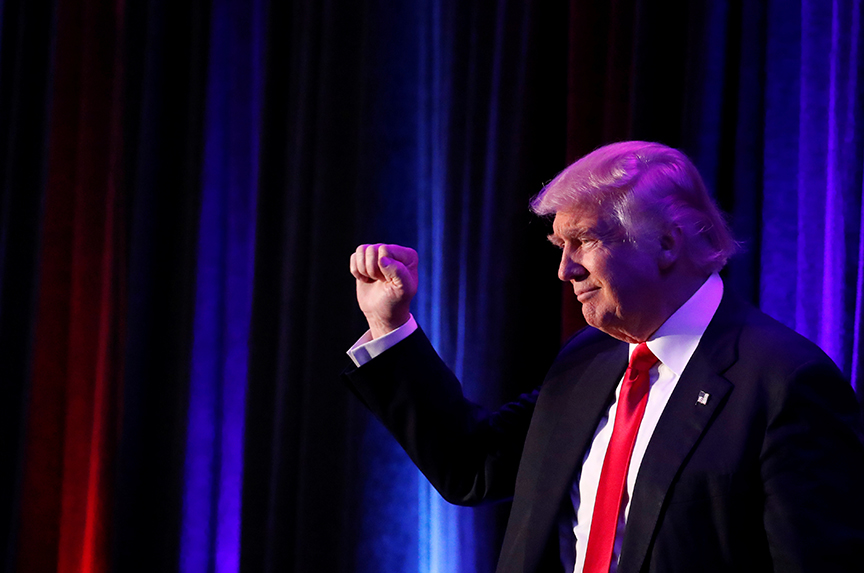
Dear European friends of America,
In these challenging times, I am writing to ask that you not abandon your American ally. We have fallen on hard times, and our new leader, Donald Trump, is different from any other in our history.
I know that some have compared Trump to one of his predecessors—Andrew Jackson. But Jackson was president in simpler times, when news moved at the speed of the pony express, and there was no country that could destroy ours in a matter of minutes. Or, for that matter, we were not able to wipe out virtually any other country on Earth.
Our current leader may reflect some of Jackson’s nationalist and populist instincts, but they were far less dangerous in our seventh president’s day than they are today—for us, for our friends, and even for our adversaries. We are still trying to understand what motivates Trump, and what he will do next. This has been made very difficult by the fact that he tends to make things up, or repeats things that others have made up, and never admits that he is wrong or has made a mistake. For many of us—and you, I presume—this behavior makes it hard to trust our president’s word and severely weakens his credibility.
We know that you, too, face some difficult circumstances. Our Dutch friends did not completely fall prey to the populist siren song, but left the movement alive and well to challenge the next government. Our French friends—whose strong nationalist pride sometimes clashes with that of us Americans—face a challenge from a similar movement. In some of your countries, illiberal tendencies already have made their way into your governments. In Turkey, which we know you don’t regard as sufficiently European, or now sufficiently democratic, to join the European Union, voters will decide in a constitutional referendum on April 16 if they want to make their government more autocratic, thereby taking them further out of the “Western” circle.
At the same time, we are both in the crosshairs of radical terrorists who, in their distorted view of Islam, believe that they have to kill enough of us to disrupt our political and economic systems. It is incredibly important that we work together to destroy terrorist networks before they can hit us, disrupt their communications, and make a clear case to our youth that they have better options than joining the Islamic State of Iraq and al-Sham or al Qaeda.
This is not to forget that Western values and security are being challenged by Russian President Vladimir Putin, who apparently believes that his nation needs to recapture the greatness of the Soviet Union. He has, until now, been willing to use a variety of forceful as well as political means toward that end. Like the radical terrorists, Putin is challenging the “dominance” of the Western political, economic, and security system. He hopes to replace these with a new setup in which Russia plays a more dominant role—without reforming the political system that keeps him in power and the financial system that guarantees his and his friends’ wealth.
What we are seeing on both sides of the Atlantic is a convergence of serious challenges to a Western system of values that we have treasured and, to some extent, taken for granted ever since World War II.
What I am asking is that we stick together. It is sad that we cannot count on a predictable, reassuring, American leader for the West. Our new president apparently doesn’t even aspire to that role. Some of us have looked toward German Chancellor Angela Merkel as the default “leader of the West.” Our German friends remind us that neither Merkel nor Germany have the power or desire to take on that role. Moreover, we understand that the lessons Germany took away from World War II have successfully framed a German policy of not using its power forcefully, and that this has been a key part of the respect the German democracy has earned from its European neighbors. Meanwhile, neither France, with its own problems, nor the United Kingdom, in the process of retreating from the European Union, are in a position to command the necessary respect.
The good news is that democracies have elections, and we are still—thank goodness—a democracy. Please hang in there with us, your like-minded American friends.
We will work with you to re-establish, if necessary, a mutually beneficial relationship between the United States and the European Union. We will support those American officials and politicians who understand how our cooperation in NATO helps defend against the external threats that we face.
We know that the EU and NATO are the two international institutions that give meaning to “the West.” What we and our forebears have established is not perfect. But those two institutions help defend and sustain the values of individual liberty, human rights, democracy, and the rule of law. If we are not able to maintain that value framework, “the West” will not exist and we all will be in trouble.
For the time being, for as long as the president of the United States does not provide leadership to the West, we will all have to stick together as the “populists of the West” to ensure that it is around for our children and grandchildren to enjoy and improve in the future.
Your American friend,
Stanley R. Sloan
Stanley R. Sloan is author of Defense of the West: NATO, the European Union and the Transatlantic Bargain (2016). He is a visiting scholar in political science at Vermont’s Middlebury College, a nonresident senior fellow at the Atlantic Council’s Brent Scowcroft Center on International Security, and a member of the Dūcō experts group. You can follow him on Twitter @srs2_.
Image: US President-elect Donald Trump arrived for his election night rally in New York on November 9. (Reuters/Andrew Kelly)
